|
This is the corrected version of today’s newsletter that was sent out earlier, inadvertently, with a number of typos. Our apologies.
The third Monday in February was originally established as a federal holiday to commemorate George Washington’s birthday. Today, however, it is popularly referred to as Presidents Day and seen as an occasion to remember all past U.S. presidents. It’s in that spirit that we bring you a selection of presidential stories from The Conversation’s archives. They may not all be celebratory but they’re certainly a timely reminder of the influence one individual can have over the course of history.
Happy Presidents Day from all of us at The Conversation US!
|
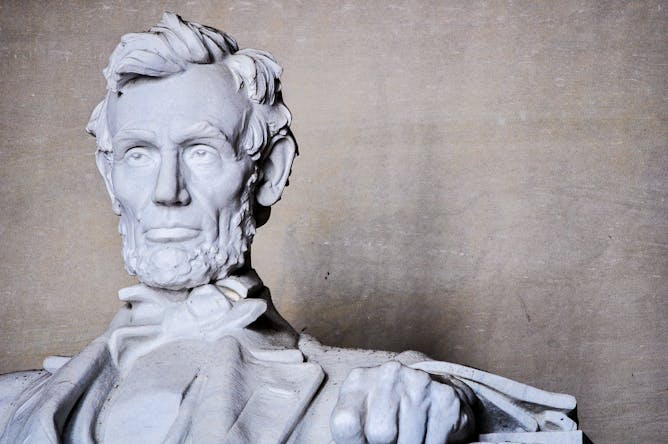
After his assassination, Abraham Lincoln became a beacon of the United States presidency.
Bethany Moslen/shutterstock.com
Shawn Parry-Giles, University of Maryland; David Kaufer, Carnegie Mellon University
Even Donald Trump has paid his respects to Lincoln as an emblem of unity.
|
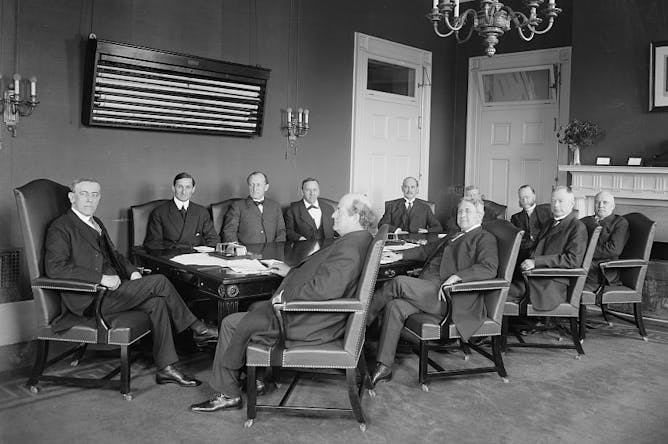
Woodrow Wilson’s cabinet.
Library of Congress
Eric S. Yellin, University of Richmond
In 2015 Princeton University investigated President Woodrow Wilson's legacy of prejudice. A historian looks at the widespread racism in the American progressive movement of the early 20th century.
|
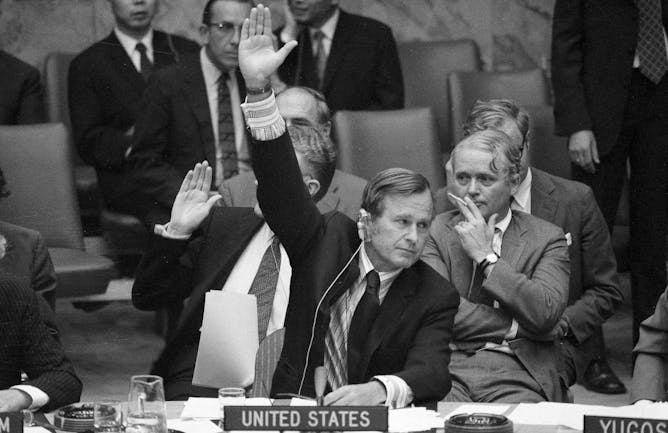
Unlike every president who followed him, George H.W. Bush had a background in foreign policy. In 1972, Bush was serving as U.S. ambassador to the U.N.
AP Photo/Dave Pickoff
James Goldgeier, American University School of International Service
The first President Bush had some impressive foreign policies wins, but could he be best remembered for getting the US entangled in Iraq?
|
|
|
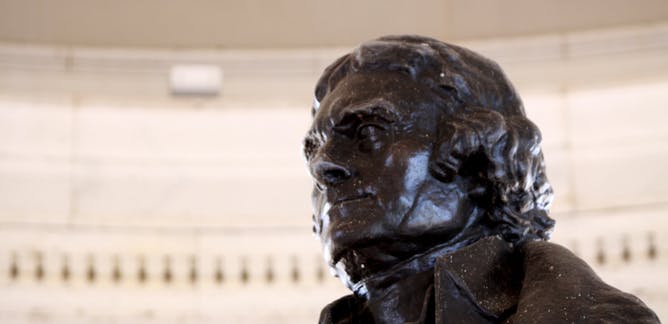
Denise A. Spellberg, University of Texas at Austin
The White House did not host the traditional reception for Ramadan in 2017. This was a departure from tradition and the vision of America's founders.
| |
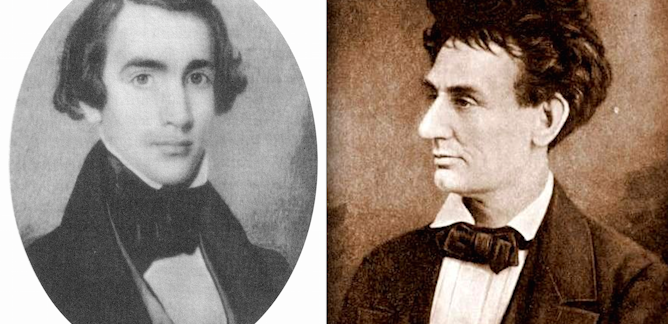
Charles B. Strozier, City University of New York
Would Abraham Lincoln ever have become president if he didn't stumble into a dry goods store in Springfield, Illinois, and strike up a friendship with its owner, Joshua Speed?
|
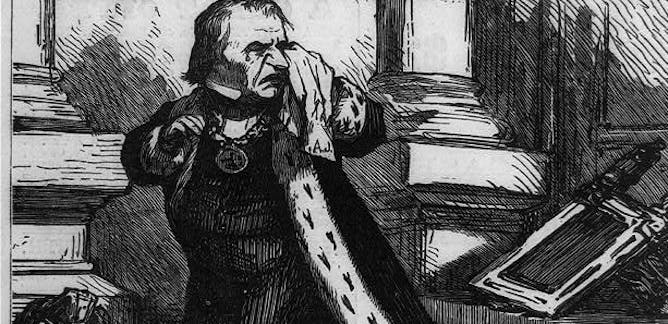
Donald Nieman, Binghamton University, State University of New York
A historian looks back at Andrew Johnson's unlikely and unsuccessful presidency and why he wasn't cut out for the job.
| |
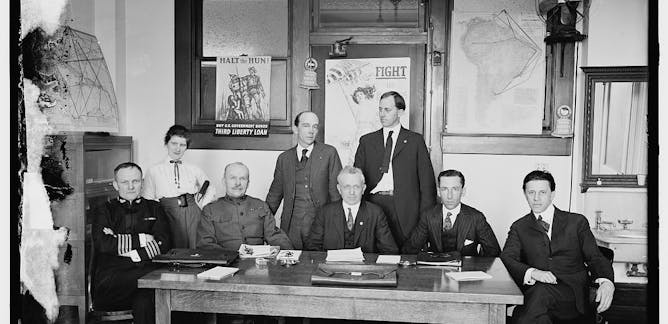
Christopher B. Daly, Boston University
An executive order signed in 1917 created what's been called 'the nation's first ministry of information.' The media are still feeling its impact.
|
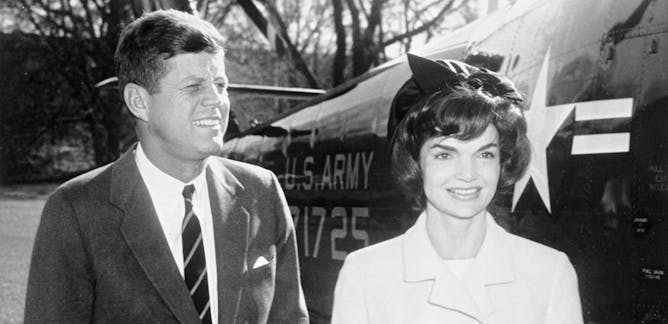
Michael Hogan, University of Illinois at Springfield
John Fitzgerald Kennedy consistently ranks as one of America's most popular leaders. A presidential historian argues that didn't just happen – it was the result of an effort to create an image.
| |
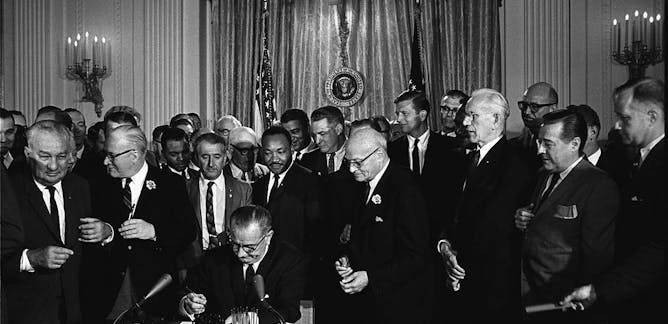
Matthew Dallek, George Washington University
Lyndon Johnson's Great Society speech marks a key moment in U.S. history: it called on government and citizens to create a more equal and humane society in ways that still guide our political debates.
|
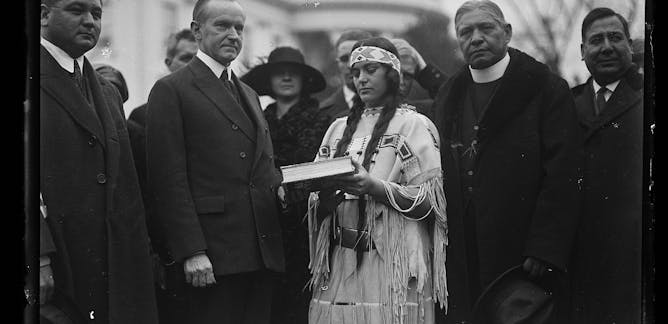
Edward Mair, University of Hull
Trump's promises to Native America have not always been the norm for US presidents. But Richard Nixon had a better record than most.
| |
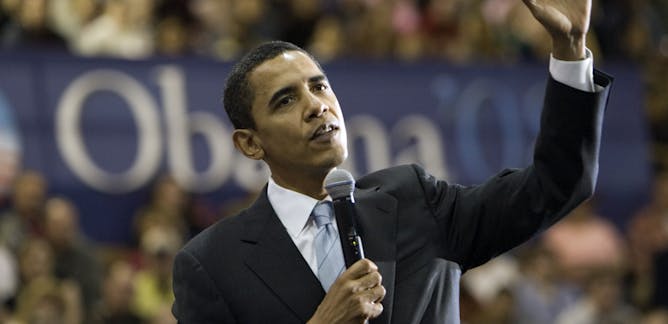
Evelyn M. Simien, University of Connecticut
Black politicians throughout US history have struggled to overcome deep, negative stereotypes held against them by white Americans. Obama succeeded at the highest level. Here's how.
|
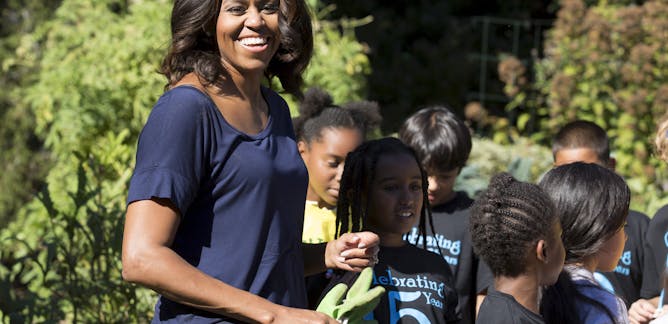
Sara Hayden, The University of Montana
Michelle Obama placed motherhood at the center of her role as first lady – a decision not all women applauded.
| |
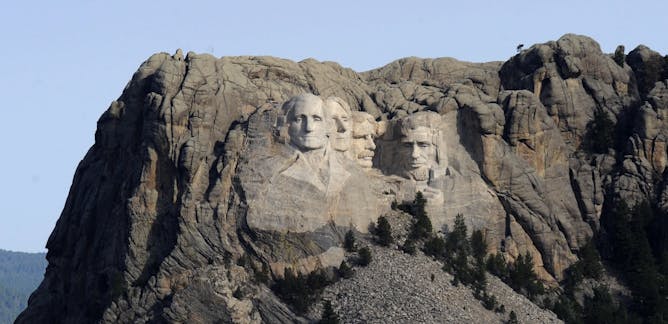
Michael Patrick Cullinane, Northumbria University, Newcastle; Iwan Morgan, UCL; J Simon Rofe, SOAS, University of London
Thanks to the US's polarised politics, presidents beloved abroad are controversial at home.
|
|
|